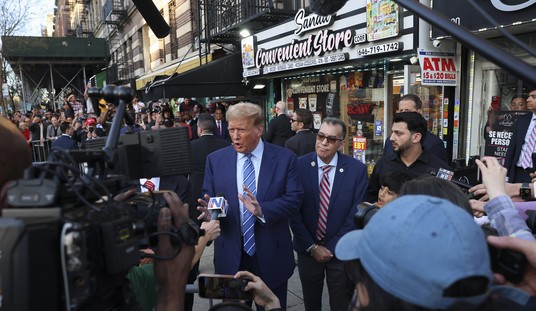President Obama’s decision to submit the Iranian nuclear deal to the United Nation Security Council before Congress has had their 60 days to review it could be as problematic for Congress as making a judgment on the deal itself.
Congress felt its responsibilities were already being usurped when they learned the Iranian deal would be treated as an agreement rather than a treaty. In response to widespread protest, the White House had to permit the agreement to be submitted to both houses of Congress for approval. Yet fearing that a negative vote — certain in the House — would occur, the administration decided to go to the UN immediately. This makes any congressional veto useless; the provisions of the agreement almost impossible to turn back.
Yesterday, the UN Security Council unanimously passed a resolution endorsing the Iranian deal. The 15-0 vote, the Times of Israel reports, “clears one of the largest hurdles for the landmark pact, which will now go before the U.S. Congress where it may face an uphill battle for confirmation.”
Only after it was a done deal did U.S. Ambassador to the UN Samantha Power choose to raise the issue of Iran’s continuing human rights violations. These were studiously avoided during the negotiations, when the U.S. had leverage.
Now, like bringing the deal to Congress, this is all for show.
This brings to mind an episode from the 20th century, when an American president similarly sought to force Congress to accept a mechanism for guiding foreign policy that would be determined not by the United States, but by the international community. After World War I, another “progressive,” President Woodrow Wilson, sought to limit America’s sovereignty when he insisted that the Treaty of Versailles incorporate the creation of a League of Nations. The victorious powers at the Versailles Peace Conference then merged the League Covenant and the terms of peace in one single package.
When he brought the treaty home for Congress’s approval, which was needed because it was a treaty, Wilson insisted that the heart of it was Article X of the League’s Covenant — which he had helped to draft. Article X, he insisted, would put an end to aggression and to war. It read as follows:
The members of the League undertake to respect and preserve as against external aggression the territorial integrity and existing political independence of all Members of the League. In case any such aggression or in case of any threat or danger of such aggression the Council shall advise upon the means by which this obligation shall be fulfilled.
Instead of the approval he expected, he faced resistance. In March of 1919, Wilson met with members of both the House Foreign Affairs Committee and the Senate Foreign Relations Committee, where he was asked whether joining the League under the terms of Article X would infringe upon American sovereignty. It suggested that if a League member nation was attacked, America would be obligated to defend it, even though it would not be in the national interest to do so. Senate Republican leader Henry Cabot Lodge of Massachusetts pointed out that the United States had no obligation to preserve the territorial integrity of another nation unless it was authorized by Congress.
Wilson was also attacked by radical isolationists like Sen. William Borah of Idaho, who argued that the League was not revolutionary enough, and was a mechanism for imperialist European powers to control the fate of the world.
Much to Wilson’s shock and consternation, when the Senate voted, American membership was defeated because of unity between the conservatives and isolationists, both of whom — for different reasons — did not sanction American membership in the newly created world organization. Although Lodge had created “reservations,” especially in regard to Article X, which if Wilson had accepted would have led to a vote for U.S. membership, he refused –he demanded acceptance of Article X as it was.
The Senate vote in November 1919 was 39 for and 55 against on acceptance of the treaty with reservations. A second vote, on acceptance of the treaty without any reservations, was 38 for and 52 against. A third vote in March 1920 was held, and the treaty was rejected 49 to 35, hence not receiving the two-thirds majority that was necessary for ratification.
President Barack Obama’s action is not exactly analogous to what Woodrow Wilson faced because he was presenting a treaty, but even so, Congress is not taking it lying down. On July 17, House whip Steny H. Hoyer and Sen. Ben Cardin wrote a letter to President Obama urging that the Security Council vote be delayed until after Congress has reviewed the agreement. Secretary of State John Kerry has fueled congressional anger, as Walter Russell Mead pointed out, by boasting:
[B]y having the Iran deal incorporated in a UN Security Council resolution, President Obama could tie the hands of future presidents, legally obligating them to abide by the Council’s resolution.
Thus, Cardin told the press:
Acting on it at this stage is a confusing message to an independent review by Congress over these next 60 days. So I think it would be far better to have that vote after the 60-day review, assuming that the agreement is not effectively rejected by Congress.
President Obama and Secretary Kerry did what they wanted, ignoring the two senators’ bi-partisan letter. They went to the UN for the favorable vote they knew it would get.
The visible ignoring of the will of Congress, whose voice represents the people, will be resented by both Congress and constituents at home. As Walter Russell Mead puts it:
“There is precious little doubt that the Founders would have considered this a threat to the system of checks and balances they wrote into the Constitution.”
He believes President Obama may be creating a very real constitutional crisis. After all, he has set the precedent for the future, in which any president could act in a similar manner by getting UN approval rather than going to the Congress and by calling any foreign policy deal an agreement rather than a treaty.
If Obama was smart, he would have restrained from rushing to submit the agreement to the UN. By going to the UN, he will be giving recalcitrant members of Congress more of an incentive to turn it down altogether, or to spend more time raising difficult questions. Obama, nevertheless, showed his contempt for Congress and disavowed the advice of Steny Hoyer and Ben Cardin. He did so for one reason, because he knew that by the time the Senate voted, approval of the deal would be a fait accompli.
But then, how smart was he to make this bad deal to begin with? Indeed, it is a real possibility that his action will provoke a constitutional crisis.
Poor Woodrow Wilson. He was commander-in-Chief at the wrong time. How he would have wished the U.S. was already a member of the League, so he too could have bypassed Congress and done something akin to what Barack Obama is trying to do now.








Join the conversation as a VIP Member